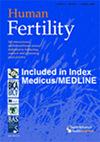Donor-linking provisions in New Zealand: counselling roles, concerns and needs.
IF 2.1
4区 医学
Q2 OBSTETRICS & GYNECOLOGY
引用次数: 0
Abstract
Donor-linking where those genetically related through donor conception (e.g. donor-conceived persons (DCP), donors and siblings), or recipient parents, search for and connect with each other, is increasingly common, both in identity-release jurisdictions where donors' identifying information may be released to DCP, usually when they become adults - and in anonymous jurisdictions, e.g. as a result of direct-to-consumer DNA testing. In this paper, we explore New Zealand fertility clinic counsellors' views regarding their donor-linking roles and their concerns and needs in relation to current and anticipated service provision. Counsellors believed that fertility service providers had a longer-term responsibility to offer donor-linking services to ensure the wellbeing of all parties affected by donor conception. They perceived their role as complex and multifaceted, encompassing psychoeducation, mediation, advocacy, facilitation, relationship counselling, and therapeutic intervention. They identified significant service provision challenges however, including inadequate staffing, training, time and prioritisation of donor-linking, and inadequate legislative provisions to support practice. Counsellors called for clarity in legislation addressing different contexts of donation and providing measures to ensure the recording of and access to identifying information. They expressed a need for comprehensive, funded donor-linking services, therefore facilitating choice, and services staffed by professionally trained and supported staff.新西兰的捐献者联系规定:咨询作用、关切和需求。
通过捐献者受孕(如捐献者受孕者(DCP)、捐献者和兄弟姐妹)或受捐者父母建立捐献者联系(Donor-linking),即那些通过捐献者受孕而有遗传关系的人(如捐献者受孕者(DCP)、捐献者和兄弟姐妹)或受捐者父母寻找彼此并建立联系,这种情况在身份释放管辖区和匿名管辖区越来越常见,在身份释放管辖区,捐献者的身份信息可能会被释放给捐献者受孕者,通常是在他们成年后,而在匿名管辖区,例如,由于直接面向消费者的DNA测试。在本文中,我们探讨了新西兰生育诊所咨询师对其捐献者联系角色的看法,以及他们对当前和预期提供的服务的关注和需求。咨询师认为,生育服务提供者有提供捐赠者联系服务的长期责任,以确保受捐赠者受孕影响的各方的福祉。他们认为自己的角色是复杂和多方面的,包括心理教育、调解、宣传、促进、关系咨询和治疗干预。然而,他们也发现了提供服务方面的重大挑战,包括人员配备不足、培训不足、时间不足、捐献者联系的优先次序不足,以及支持实践的法律规定不足。辅导员呼吁明确立法,处理不同的捐赠情况,并提供措施,确保记录和获取识别信息。他们表示需要提供全面的、有资金支持的捐献者联系服务,从而为选择提供便利,并提供由经过专业培训和得到支持的工作人员提供的服务。
本文章由计算机程序翻译,如有差异,请以英文原文为准。
求助全文
约1分钟内获得全文
求助全文
来源期刊

Human Fertility
OBSTETRICS & GYNECOLOGY-REPRODUCTIVE BIOLOGY
CiteScore
3.30
自引率
5.30%
发文量
50
期刊介绍:
Human Fertility is a leading international, multidisciplinary journal dedicated to furthering research and promoting good practice in the areas of human fertility and infertility. Topics included span the range from molecular medicine to healthcare delivery, and contributions are welcomed from professionals and academics from the spectrum of disciplines concerned with human fertility. It is published on behalf of the British Fertility Society.
The journal also provides a forum for the publication of peer-reviewed articles arising out of the activities of the Association of Biomedical Andrologists, the Association of Clinical Embryologists, the Association of Irish Clinical Embryologists, the British Andrology Society, the British Infertility Counselling Association, the Irish Fertility Society and the Royal College of Nursing Fertility Nurses Group.
All submissions are welcome. Articles considered include original papers, reviews, policy statements, commentaries, debates, correspondence, and reports of sessions at meetings. The journal also publishes refereed abstracts from the meetings of the constituent organizations.
 求助内容:
求助内容: 应助结果提醒方式:
应助结果提醒方式:


